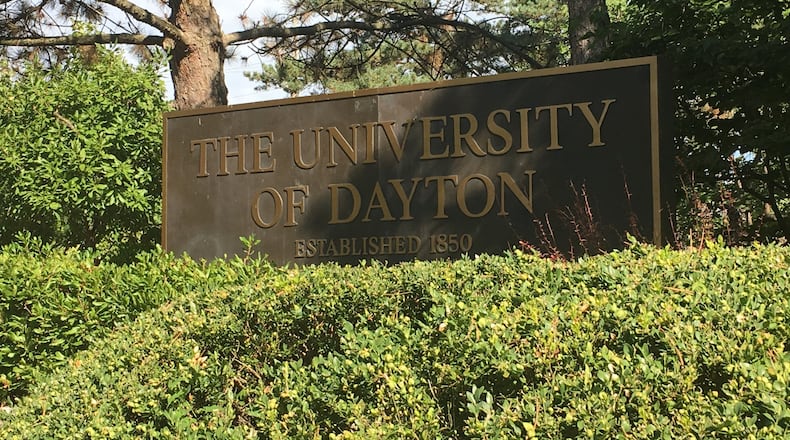“The incursion of UD students threatens everything Oakwood stands for,” Miller said.
UD, which has about 8,600 undergraduate students, says that 28 percent of its students are living off campus or commuting, according to the 2015-16 Common Data Set.
University of Dayton officials said in a statement: “As good neighbors, we continually meet and discuss issues with all community partners and citizens, including the city of Oakwood. When we hear of a complaint, we work to reach out to the person or group, which we are doing in this case, to find a resolution.”
The university offers a “good neighbor guide” to students who choose off-site housing in an effort to teach them to be “law-abiding citizens who show respect for their neighbors and surrounding community.”
Oakwood’s zoning ordinance has an occupancy code that limits the number of “unrelated people” in one household to two, unless they have a disability. That would rule out many students, who often live in groups of four or more.
At the city council meeting, Duncan said the city would do whatever was in its power to enforce the ordinance.
“It’s hard to monitor, but it’s clearly an objective of the city to make sure that ordinance is enforced,” Duncan said. “We will redouble our efforts.”
According to Oakwood’s tenant information form, any fabrication or false statements made on the form could lead to a first degree misdemeanor, which comes with a fine of up to $1,000 and/or a maximum of six months in jail.
Miller’s plea to the city council was not the first of its kind. The North Oakwood Association addressed Oakwood’s city council on the same issues in 2010 and again in 2011.
Ryan Black, a senior Public Relations major at UD, says he understands why Oakwood residents would come to defend their city from migrating university students.
“Honestly, I can see why they wouldn’t want the ghetto expanding into Oakwood,” Black said. “Oakwood is considered a really nice area and as much as I love the University of Dayton ghetto, I understand residents of Oakwood standing against it expanding into their town.”
Kerrie Josefovsky, a 23-year-old Education major, was unaware of the ordinance but also defended Miller’s stance.
“I can understand why that resident believes that. Oakwood is known for its high property value, good schools, and family life. The ghetto is housing for college students.” Josefovsky said. “Even taking UD and Oakwood out of the equation, student housing on any college campus could lower the property value of adjacent neighborhoods.”
Both Black and Josefovsky, who live off campus but not in Oakwood, acknowledged students’ ability to be boisterous.
“College students are notorious for late nights and parties,” Josefovsky said.
About the Author
